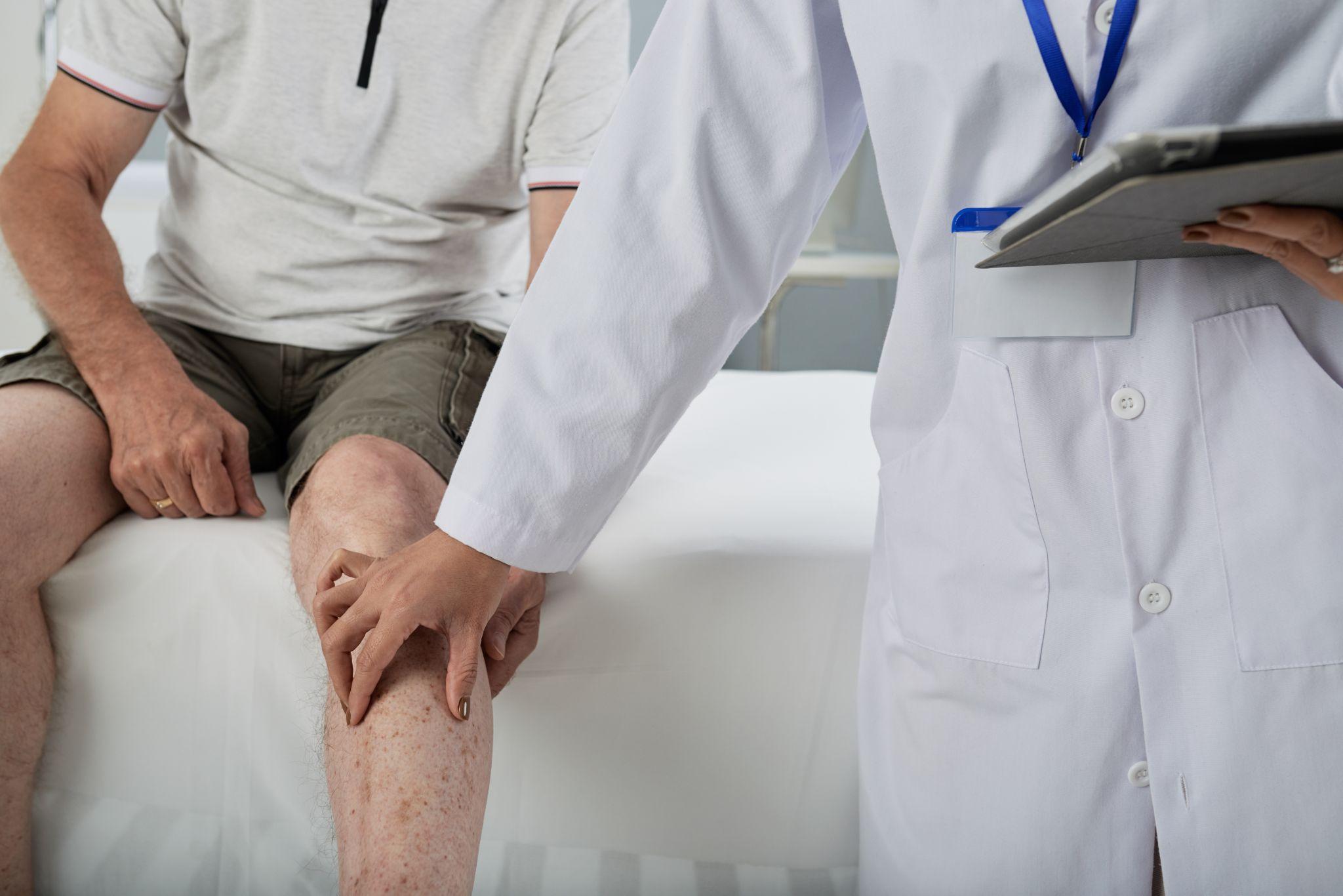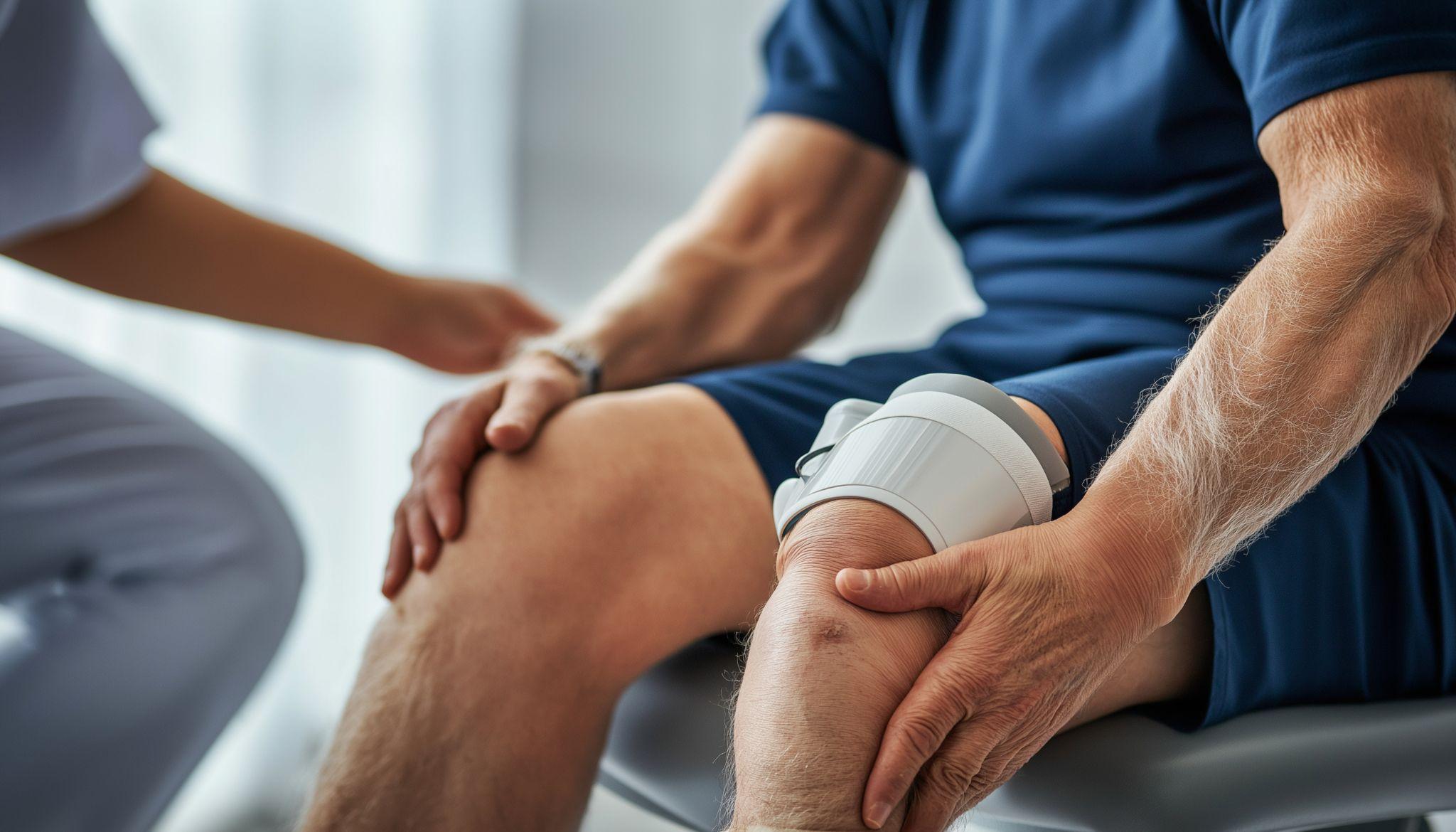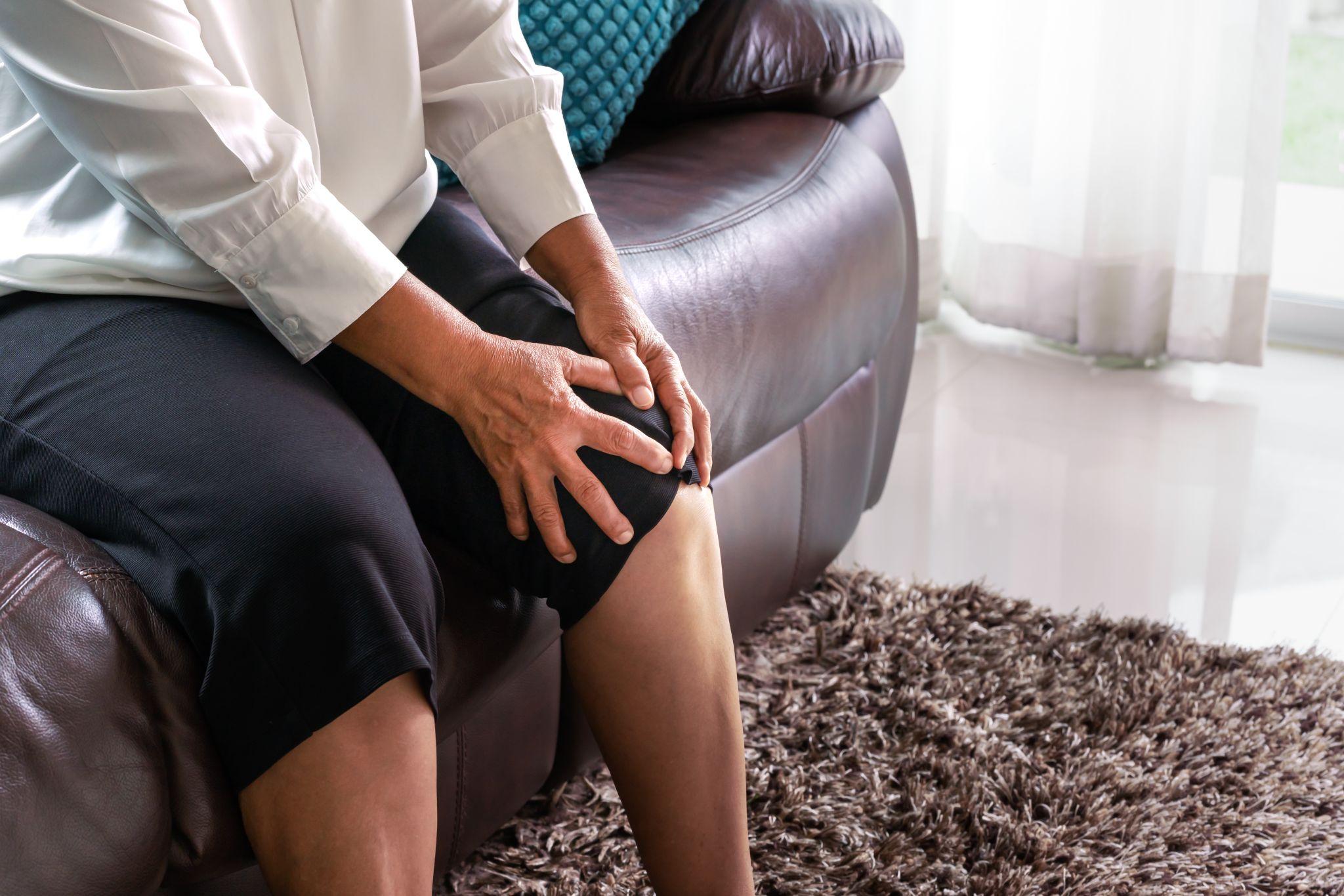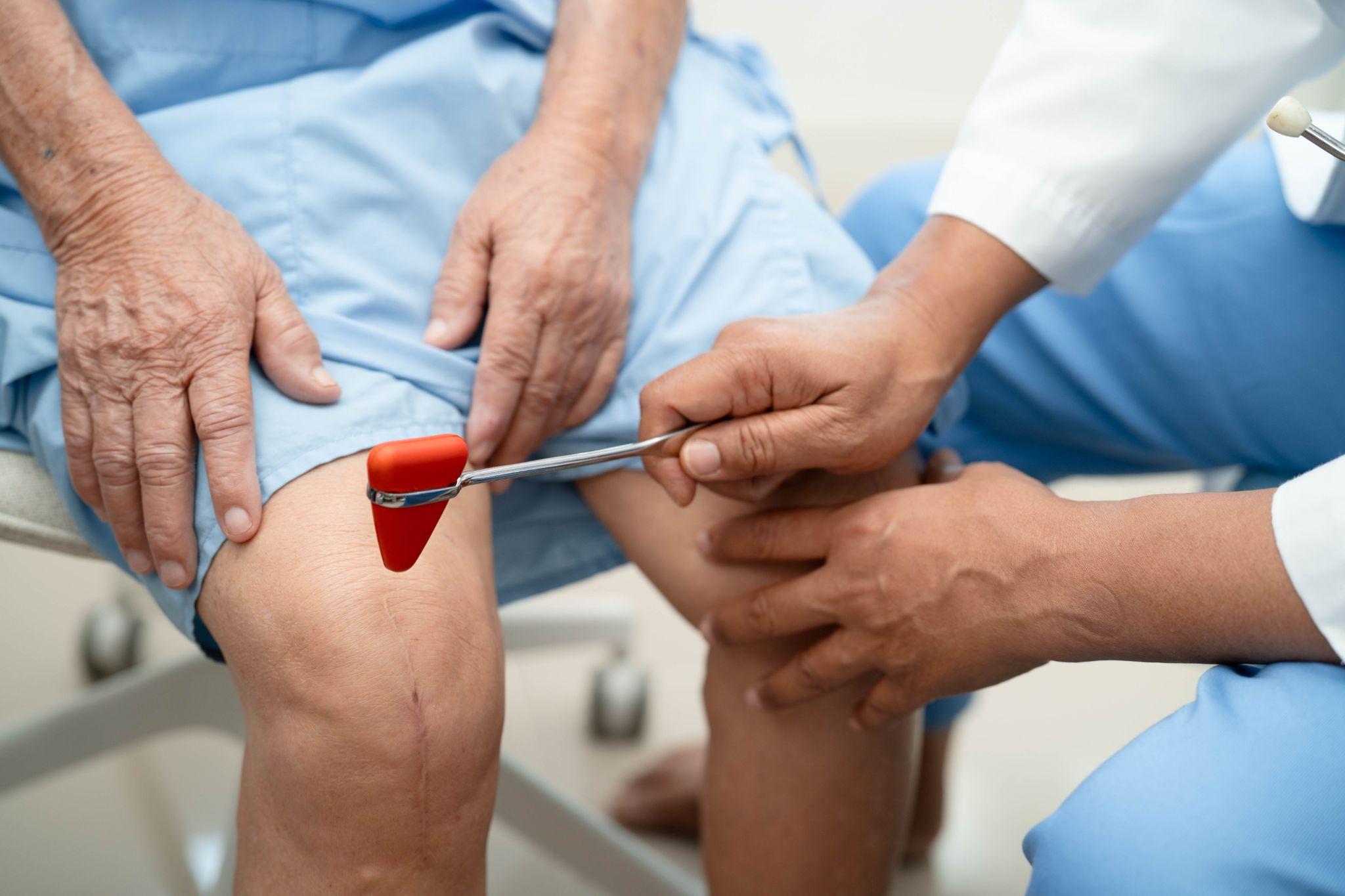Top 7 Warning Signs You May Require a Knee Replacement

If knee pain continues even at rest or during sleep, it’s a strong indicator of advanced joint damage. This pain often limits mobility and daily comfort.
The most important joint in the human body is the knee. It enables us to walk, sit, stand, climb stairs, and create virtually every motion we perform daily. Through arthritis, wear and tear, disease, or injury, the knee joint will ultimately fail. Wearing out usually produces pain, stiffness, and loss of motion.
While minor knee issues can generally be treated by medication, physiotherapy, or avoiding weight-bearing activities, in some instances, they aggravate and require surgery. Surgical replacement of the knee is usually only recommended after all else has been attempted and the quality of life severely impaired.
This is a blog to assist you in deciding on the most critical warning signs that will notify you if you will need a knee replacement. Knowing these signs in advance can result in early medical intervention and improved outcomes.
Understanding Knee Replacement Surgery
Knee arthroplasty or knee replacement is the surgical replacement of a degenerative or worn-out knee joint with an artificial joint. Operation is usually indicated when knee pain becomes chronic and changes lifestyle and quality of life.
Two basic forms of knee replacement are:
Total Knee Replacement (TKR): The Entire knee joint is substituted with a prosthetic joint.
Partial Knee Replacement (PKR): The diseased portion of the knee is replaced and not the healthy components of the joint.
The most common indications for surgery for knee replacement are:
- Osteoarthritis: Chondrodegenerative joint disease with loss of cartilage.
- Rheumatoid Arthritis: Autoimmune disease leading to chronic inflammation.
- Trauma or Injury: Fracture, ligament sprain, or meniscus injury.
- Degenerative changes: Age-related changes leading to degeneration of the joint.
It's a good idea to have your knee examined sooner rather than later. Delays can result in additional joint damage, deformity, or complicating factors that will make surgery and rehab harder.
Top 7 Signs You May Need a Knee Replacement

Difficulty bending, straightening, or moving your knee freely may suggest that the joint is severely worn down. Stiffness often worsens over time.
1. Severe or Chronic Knee Pain
Chronic pain is the most common symptom that may require surgery for your knee. When your knee aches even at rest, lying down, or sleeping, it is a significant red flag. Over-the-counter drugs or even prescribed medications cannot ease this.
You might discover that your pain worsens with activity, such as walking or climbing up the stairs, and endures well after the activity has ceased. Pain in your knee affecting daily activities and overall well-being is an invitation to an expert.
2. Limited Range of Motion
If you have trouble bending, straightening, or turning your knee, you may be having limited motion in a joint due to cartilage loss or bone injury. Limited motion can make even simple activities, such as sitting, tying your shoe, or climbing into a car, difficult.
If stiffness is not eased by stretching, exercise, or physical therapy and becomes a stiff hindrance to your mobility, then it could be a sign that the joint is too severely damaged and requires replacement.
3. Chronic Swelling and Inflammation
Swelling upon exercise is inevitable as a transient phenomenon, but intractable swelling that is not cleared with medication, ice, and rest is a problem. Swelling from secondary inflammation in the body caused by cartilage breakdown and wear and tear, or knee arthritis, is common.
You may also experience heat, swelling, or tenderness near the joint. If swelling has become part of your daily life, non-surgical actions no longer work, and surgery may be the next best option.
4. Knee Deformity
Check your legs. Are your knees beginning to bend into or out of their usual shape? This change in leg shape, knee deformity occurs when the joint is significantly impaired and can no longer bear your body's weight properly.
You can also have the sensation that your knee is unstable and "gives way" with walking or is "wobbly." These symptoms are a sign that the joint's alignment is abnormal, and knee replacement may be required to restore function and stability.
5. Non-Success of Non-Surgical Treatment
Ninety percent of patients will try non-surgical treatment initially, including:
- Physical therapy
- Bracing of the knee
- Anti-inflammatory drugs
- Injections (steroid or hyaluronic acid)
If you’ve tried all of these options consistently and still feel little or no improvement, it’s a strong sign that the knee has reached a stage where only surgery can provide lasting relief.

Ongoing swelling that doesn’t respond well to rest, ice, or medications may be a sign of progressive joint deterioration.
6. Difficulty in Performing Daily Activities
If your knee pain or stiffness begins to get in the way of your daily activities, such as walking to the store, getting out of bed, cooking dinner, or doing the laundry, it's no longer a nuisance; it's a matter of quality of life.
Other individuals begin to use walking canes or sticks just to move. If every day you are bending your schedule or skipping activities because of knee issues, then it is time you think of knee replacement surgery as the best option.
7. Pain Interferes with Sleep and Mental Health
Rest is needed for good overall health and also for the process of healing. If you are lying awake due to knee pain or cannot sleep at night and wake up many times, your body does not receive the rest it requires. Chronic pain also impacts your mental health.
People with chronic knee issues tend to be tired, irritable, apprehensive, or depressed. If your mood is now disrupted by pain, then the red flag is up, and something needs to be done, and knee replacement is one of them.
Other Risk Factors That Could Lead to Surgery

If your knee can no longer bend or straighten fully, it may be due to advanced arthritis or bone damage requiring replacement.
Besides the significant signs, some risk factors predispose a person to the need for knee replacement surgery:
- Age: Individuals over 60 years are more likely to develop severe osteoarthritis.
- Obesity: Overweight creates increased stress on knee joints, accelerating joint wear and tear.
- Injury or Prior Surgery: Previous fracture, ligament sprain, or prior surgery may predispose the knee to injury.
Rheumatoid Arthritis or other autoimmune conditions can also cause rapid joint deterioration.
If you fall into any of these groups, be extra careful about your knee and take your doctor's advice for frequent check-ups.
When to Consult a Doctor
You may consult an orthopedic doctor if you observe any of the above-mentioned warning signs. Delay in treatment will increase the damage and decrease the likelihood of a successful surgery.
Here's what you can expect when you visit:
- Physical Exam: To measure your strength, mobility, and pain.
- Imaging Tests: X-rays, MRI, or CT scans to understand the joint's condition.
- Treatment Discussion: From the test results, the doctor may recommend further conservative treatment or knee replacement.
Earlier diagnosis and treatment result in improved outcomes and even defer the need for surgery.
Alternative Choices Before Surgery
Knee replacement surgery is a significant operation, and the majority of physicians will attempt everything else first, except for severe damage. Some of the things that you can try before surgery are listed below:
- Lifestyle Changes: Weight loss and switching to low-impact exercises such as swimming or bike riding decrease joint stress.
- Physiotherapy: Strengthens and increases the flexibility of the knee.
- Injections: Corticosteroids or hyaluronic acid decrease swelling and enhance lubrication.
- Platelet-Rich Plasma (PRP) Therapy: Utilizes material derived from your blood to enhance healing.
- Stem Cell Therapy: Experimental, but it can repair early joint deterioration.
- Custom Knee Braces: Provide additional joint support and reduce pain with movement.
If none of these solutions ease your symptoms, knee replacement could be your key to an active, pain-free existence.
Conclusion
Leg pain is normal, but you shouldn't discount chronic pain or restricted movement. Of the seven most important warning signs, intense pain, restricted movement, persistent swelling, deformity, unsuccessful treatments, restricted daily activity, and poor mood or sleep, it's evident that these might be the end of the beginning for your knee before you even reach intense pain.
Early consultation with a doctor can result in more favorable outcomes of treatment, either surgical or not. Keep in mind, knee replacement is not just about the relief from pain; it's about regaining your life.





